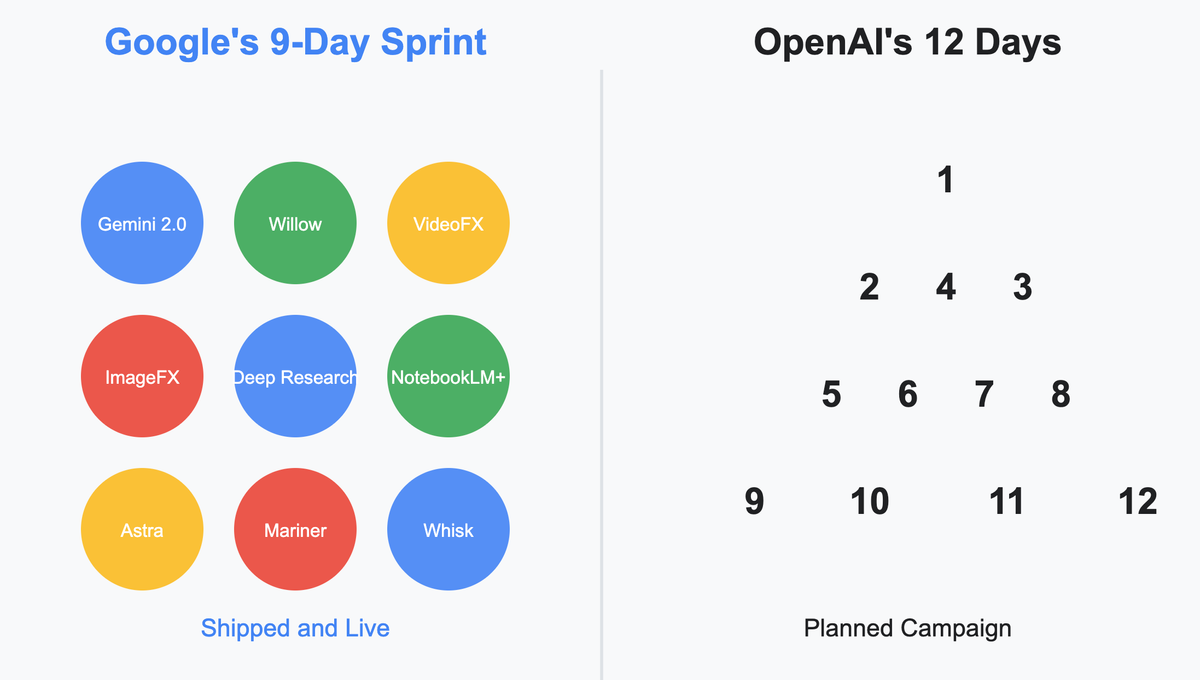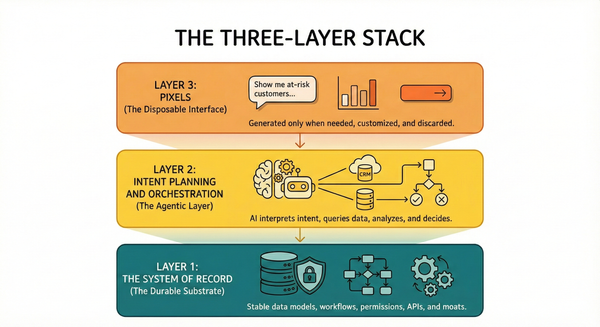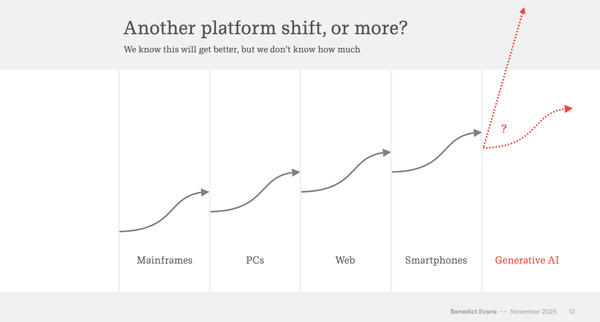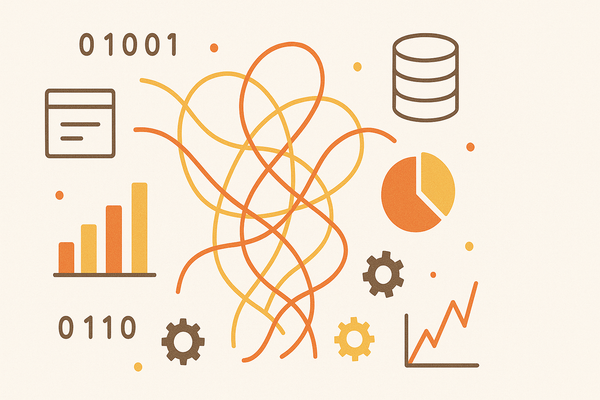While Everyone Watched OpenAI, Google Just Changed the Game
While OpenAI prepared their '12 Days' marketing campaign, Google quietly shipped 9 products that changed everything. Their new AI is so fast, users are asking them to slow down. This wasn't just a comeback—it was an ambush.

OpenAI had their "12 Days" planned. The tech world was ready for their moment. Then Google stepped in and flipped the script.
Too Fast to Handle
In a stunning turn of events, Google has transformed from playing catch-up to setting the pace in artificial intelligence. While OpenAI planned their moment in the spotlight with their "12 Days of OpenAI" campaign, Google quietly orchestrated what might be the most impressive tech rollout we've seen in years.
Let's talk about speed. Google's Gemini 2.0 is so blazingly fast that users are actually asking them to slow it down. Let that sink in. When was the last time you heard anyone complain that a product was too quick?
Here's what makes this extraordinary: Most AI models show their responses gradually, like watching someone type in real-time. This "streaming" feels natural and gives us time to process information. But Gemini 2.0's "flash" model is so fast that it's outpacing our ability to read comfortably. Users are writing to Google with an unprecedented request: please make it slower. Think about that – in a world obsessed with speed, an AI is too quick for human comfort. This isn't just about raw performance – it's about redefining what we expect from AI interactions.Not Just One Win
But the real story isn't just about one product. Google has unleashed a barrage of innovations that touch everything from quantum computing to video generation. Their Willow quantum chip just solved a problem that's stumped researchers for three decades, showing that you can reduce errors while adding more qubits. For non-quantum folks, that's like saying they figured out how to make your car run smoother as you add more horsepower – something that usually works the opposite way.
Making Videos Look Real
The video generation space got particularly interesting. Google's VideoFX is outperforming competitors in real-world scenarios. Take a simple prompt like "a chef cutting a steak with steam rising." Sounds basic, right? But think about all the elements that need to work together: the knife movement, the meat's texture, the steam's behavior, the hand motions. VideoFX nails these details in a way that makes other solutions look amateur.
Simple Beats Complex
Their ImageFX platform is giving established players like Midjourney serious competition. It's not just about image quality – it's about accessibility. No more jumping through hoops or navigating Discord servers. Just open Google Labs, type what you want, and watch it appear. This is how AI tools should work.
Research Gets Faster
For the research community, Deep Research is a game-changer. It's cutting research time by 90%, delivering accurate citations and summaries that could revolutionize both academic and business research. The only limitation? A five-page output cap that's likely temporary.
Built for Business
The enterprise side hasn't been neglected either. NotebookLM Plus brings shared notebooks, team analytics, and enterprise-grade security to the table. But perhaps the most exciting developments are in automation. Project Astra lets you interact with your environment through AI-powered vision, while Project Mariner handles complex tasks like travel booking with surprising competence.
Speed Wins
What's truly remarkable isn't just the quality of these releases – it's the pace. Google is shipping products faster than anyone else in the space, including OpenAI, which until recently seemed untouchable. This raises an interesting question: Could Google's deep pockets and technological momentum help them dominate the AI market in 2025?
What Comes Next
The landscape is shifting. While OpenAI grapples with funding challenges for their next big model (GPT-6), Google keeps pushing forward. Microsoft, despite their strong position, might need to rethink their strategy if their primary AI partner faces headwinds.
This isn't just a comeback story. It's a reminder that in tech, today's leader can become tomorrow's follower, and vice versa. Google isn't just catching up anymore – they're setting the pace. And in doing so, they're forcing everyone else to play catch-up.
The real winner in all of this? Users. Competition drives innovation, and right now, Google is pushing the entire industry to move faster, think bigger, and deliver better. The AI race is far from over, but one thing's clear: Google isn't just back in the game – they're changing how it's played.





